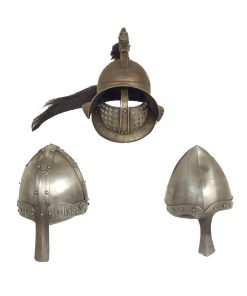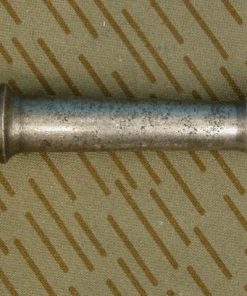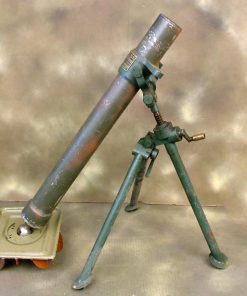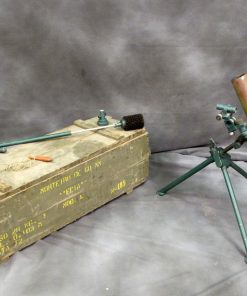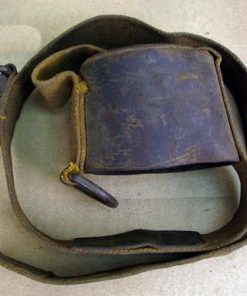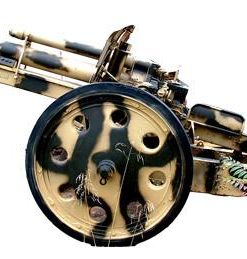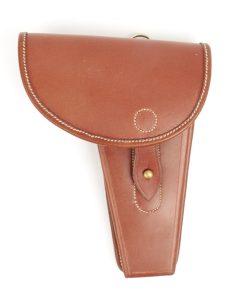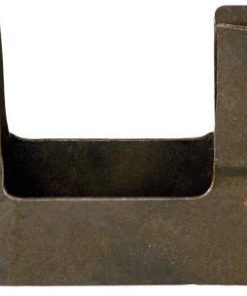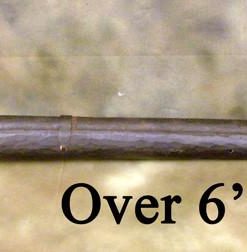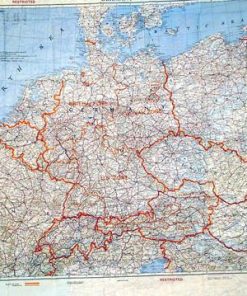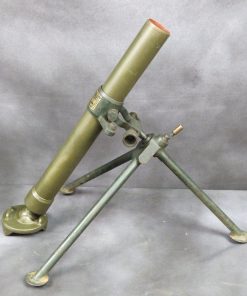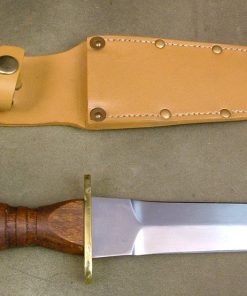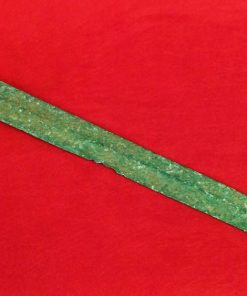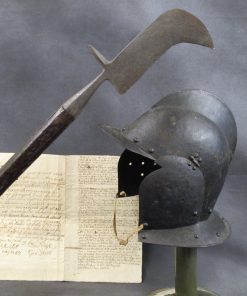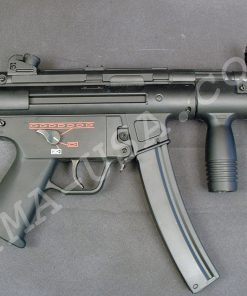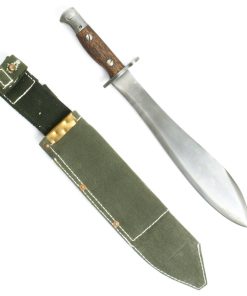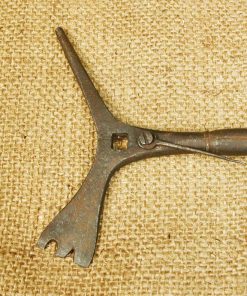Original German WWII Field Telephone Klappenschrank 10 Line Phone Switchboard by Prchal-Ericsson in Czechoslovakia – Dated 1941 Original Items
$ 895,00 $ 223,75
Original Item: Only One available. This is a very rare German 1941 dated military field telephone 10 line switch board. It bears an original data plate on the side that gives the serial number, maker logo and date:
1724 (Logo) 1941
Close inspection of the logo shows that it reads as follows:
PRCHAL-ERICSSON
(Two People Logo)
PRAG-KOLIN
This is a known company in Czechoslovakia, which after it was captured by Germany in 1940 was pressed into service making materials for the German war machine. It should be noted that Prag and Kolin are the German spellings for the Czech cities of Praha and Kolín. There is also a Waffenamt WaA410 stamped into the wood under the data plate.
It appears complete with all internals, connections and wires, the interior bears various data plates and labels. We are not sure if its functional and have not tested it, but do not see any obvious reason as to why it would not work after it is properly serviced. Measures 13 3/4″L x 8″H x 6″D.
Comes ready to research and display!
Kleiner Klappenschrank zu 10 Leitungen 10 line switchboard
The redesign of equipment in 1933 had the aim to simplify and the new 10 line field switchboard would be as simple as possible, omitting buzzers, alarm bells, built-in telephone and provisions to connect to public networks. These functions would have to be taken up by external accessories where necessary. At the same time the unit was redesigned for “single interconnection cord” operation, negating the need for separate interconnection cable indicator flaps. Instead of eight cables, the unit now has 10 interconnection cables, one for each line. The basic design with a falling indicator flap, interconnection button and interconnection cable socket for each of the ten lines remained unchanged.
To operate the new “Kleiner Klappenschrank zu 10 Leitungen”, an external FF 33 field telephone would have to be connected. If connections to public networks were required, an “Amtszusatz” or public network connection unit would be required. The redesign resulted in a unit roughly half the size and weight of the old OB 17 model. The unit did not require any presetting of jumpers or interconnections, making it far simpler to operate. A metal lid protecting the top and the use of the standard FF 33 carrying strap allowed the switchboard to be carried in the field and protected it from the weather.
Two locks on the side allow the unit to be opened, giving access to the interconnection cable storage compartment. Also in this compartment is a 30 pole plug socket, which can connect the switchboard to a remote line terminal unit, negating the need to connect the lines directly to the switchboard.
Normally the incoming telephone lines are connected to the terminals on the top panel. Apart from line connections, the top panel has two terminals to connect a FF 33 field telephone and three terminals to connect an external alarm battery and alarm bell. These are all the connections that the operator had to deal with.
When an incoming call is received the signal flap of the relevant line will drop, revealing the number of the line behind the flap. Press the connection button for the relevant line and speak to the caller via the handset of the FF 33 field telephone (remembering to depress the microphone switch in the handset while talking). When the caller has indicated which line he wants to speak to, press the connection button for that line and turn the generator handle of the field telephone. When the call is answered, place the interconnection cord of the caller into the interconnection plug socket of the outgoing line. Return the signal flap of the caller in the up position and press the red connection release button on top. The call is now connected.
At the end of the call, one of the callers will turn the generator rank, resulting in the signal flap of the incoming line to drop. The operator can now remove the interconnection cord of that line and replace it in its storage socket. Close the signal flap to reset the switchboard for the next call. Conference calls can be made by repeating the connection process: the interconnection cable of caller 1 is plugged into the interconnection plug socket of caller 2; the interconnection cable of caller 2 is plugged into the socket of caller 3 etc. In theory, all ten lines can be connected to a single conference.
Fast Shipping with Professional Packaging
Thanks to our longstanding association with UPS FedEx DHL, and other major international carriers, we are able to provide a range of shipping options. Our warehouse staff is expertly trained and will wrap your products according to our exact and precise specifications. Prior to shipping, your goods will be thoroughly examined and securely secured. We ship to thousands clients each day across multiple countries. This shows how we're dedicated to be the largest retailer on the internet. Warehouses and distribution centres can be located throughout Europe as well as the USA.
Note: Orders with more than one item will be assigned a processing date depending on the item.
Before shipping before shipping, we'll conduct a thorough inspection of the items you have ordered. Today, the majority of orders will be delivered within 48 hours. The delivery time will be between 3-7 days.
Returns
The stock is dynamic and we cannot completely manage it because multiple stakeholders are involved, including our factory and warehouse. So the actual stock may alter at any time. It's possible that you may not receive your order once the order has been made.
Our policy is valid for a period of 30 days. If you don't receive the product within 30 days, we are not able to issue a refund or an exchange.
You can only return an item if it is unused and in the same state as the day you received it. You must have the item in its original packaging.
Related products
Uncategorized
Uncategorized
Uncategorized
Australian WWII Owen MK1 Machine Carbine SMG Custom Fabricated Replica with Sling Original Items
Uncategorized
Uncategorized
Armoured Fighting Vehicles of the World: AFVs of World War One (Hardcover Book) New Made Items
Uncategorized
Uncategorized
Band of Brothers ORIGINAL GERMAN WWII Le. F.H. 18 10.5cm ARTILLERY PIECE Original Items
Uncategorized
Angolan Rebel 1970s era 60mm Inert Display Mortar from Angolan Civil War Original Items
Uncategorized
Uncategorized
Uncategorized
Uncategorized
Uncategorized
Uncategorized
Armored Burgonet Helmet & Polearm from Scottish Castle Leith Hall Circa 1700 Original Items
Uncategorized
Uncategorized
Uncategorized














